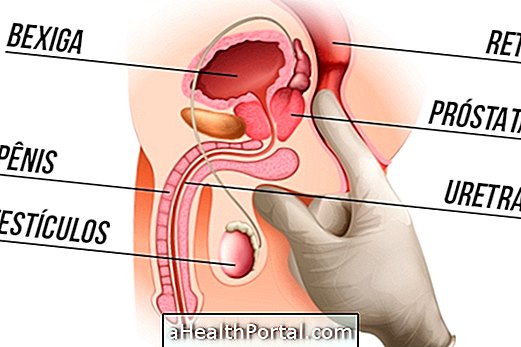In order to diagnose the presence of intestinal worms, a parasitological examination of feces should be performed, which detects the presence of eggs or larvae of any type of worm, such as those caused by teniasis or ascariasis, also known as roundworm.
However, when the symptoms of intestinal worms are present but the first stool examination is negative, it is necessary to repeat the examination because the final result is only considered negative after 3 negative tests done on different days.
How to take the stool exam
To take the test, one or more stool specimens should be collected at home, preferably in the morning and giving a 2 to 3 day interval between collections. In these cases, or when stools can not be brought to the laboratory sooner, they should be placed in the refrigerator for up to 12 hours or they may be collected in the laboratory with special liquid in the laboratory to preserve the stool for longer.

It is important to remember that the consumption of red meat or poorly cooked meat on the day before the examination should be avoided and that it is not allowed to take medicines that affect the functioning of the intestine in the 7 days prior to the collection of feces such as laxatives, antibiotics, inflammatory, antiparasitic and antidiarrheal remedies.
A good tip is to evacuate onto a clean paper or container and use the collection scoop from the kit to transfer the faeces into the bottle. In general, the required amount for each sample is ½ tablespoon of faeces.
Types of worms
The major types of worms that affect the bowel are protozoa, such as those that cause amebiasis and giardiasis, and helminths, such as those that cause ascariasis, schistosomiasis, and teniasis. See the Symptoms and treatment of Giardiasis.
Usually these worms cause symptoms such as abdominal pain, swelling, itching in the anus, diarrhea interspersed with constipation, fatigue and muscle weakness. In addition, in some cases it is also possible to see the worms in the faeces or in the toilet paper.
Treatment
The treatment for worms is done with the use of medicines that fight worms' larvae, such as Albendazole and Mebendazole, which should be taken according to medical advice.
However, these medications do not fight the worms' eggs, and hygiene precautions are necessary to prevent recurrence, such as washing hands often, not sharing towels and underwear with others, and not putting your fingers in their mouths. See more tips on Worms Treatment.
Here's how to treat worms naturally in this video:






















